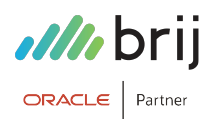The main advantage of well maintained, managed enterprise applications is smooth business operations. Building a strong, adept, internal team to manage your functional help desk can be expensive in terms of time, money, and the support skill sets needed. What do you do if an outage happens in the middle of the night, if your IT team is occupied with other support tickets/projects, or if a key member of your IT team leaves the company?

For some businesses, outsourcing support for certain enterprise applications is a viable alternative to building an internal team, both financially and operationally. Here are 5 ways outsourcing your help desk can improve your bottom line:
Here are 5 ways you can achieve this:
1. Reduce IT overhead costs with a flexible service plan and eliminate some staffing, training, and turnover costs associated with building an internal help desk.
By outsourcing functional help desk support, the effort and cost of recruiting and hiring for different support skill sets are handled by the managed service provider, rather than your organization. You can instead focus on hiring IT talent based on skills needed for operational efficiency and strategic projects, such as a network administrator that focuses on optimizing your network. Using a managed service provider allows you to access senior, certified functional experts across the various support skill sets that are relevant to your organization and in the quantity you need. If you only need ¼ of an FTE to manage JDE CNC functions, then you have the flexibility to have just that, rather than having to hire an FTE. You will also be able to leverage these experts much sooner than it takes to recruit, interview, hire, and train new employees, without the worry of backfilling positions if employees leave.
A managed service provider with flexible service plans that can be tailored to your business needs can help you reduce IT overhead costs so that you only pay for what you need. Flexible plans can also support growth and changes to your business. If your organization grows rapidly, flexible support can scale with that growth. Similarly, if a company has seasonal business fluctuations or has to scale back operations, a flexible plan can accommodate those too. No matter how big or small an organization is, a managed service provider with flexible plans will be able to provide the same level and quality of support, tailored to the unique needs of the business.
2. Increase operational efficiency by freeing up IT resources to focus on strategic projects.
Instead of your IT team having to balance between support and project tasks, you can focus IT resources on strategic projects aligned with improving operations or growing your business. Find a managed service provider with flexible plans so that you can scale support ticket handling based on your organization's needs, whether it be all or just a portion of them. You may even choose to vary support based on seasonality so that, during your busiest ticketing times, you have an additional team to help support your IT department.
3. Improve core business operations by investing in upgrades and new applications.
Now that you’re saving on staffing costs for your functional help desk support and enabling your existing IT staff to focus on strategic projects, more of your IT budget can be reinvested into application upgrades and new software that can take your business or your platform further. JD Edwards Version 9.2 provides many automation functions and features allowing your business processes to be more fluid and routine. With access to additional operating capital as a result of outsourcing your functional help desk, prioritize your upgrade project and realize additional cost savings through the power of automation.
4. Increase ticket resolution efficiency to reduce interruptions in business operations.
There are several advantages to outsourcing your functional help desk with a managed service provider, such as:
- Accelerated Onboarding: You can start getting support in as little as 1 day. If you have a pressing issue that needs immediate resolution, the managed service provider can remote into your system, and work alongside your team to start problem-solving immediately. The full onboarding process usually takes 2 - 3 weeks, far less time than it takes to recruit, hire, and onboard a new employee. You’ll work with the managed service provider to set up remote access, identify the core personnel that they’ll be interacting with, and establish rules of engagement (e.g. do they speak to end users or work through the IT department?).
- Accelerated Issue Resolution: Managed service providers supporting your organization will be able to resolve support issues more quickly because, unlike an internal team, the managed services technicians are specialists in the applications they are supporting. Managed services provide you with a team of people who can triage support tickets and direct them to the right specialist to resolve them. Accelerated and reliable incident resolution means fewer issues interrupting your business operations and more satisfaction for your end users.
- Direct Vendor Management: Managed service providers can also manage support issues with vendors, such as Oracle, on behalf of your organization. Since they can collect the system logs that are needed and already have established relationships with these vendors, they can interact with the vendors to get issues resolved more quickly.
5. Lower risk & increase security with a 24x7x365 early warning system.
Managed service providers also offer monitoring services to detect service interruptions earlier and minimize operational impacts. Effective monitoring involves multiple facets of an application, not just whether services are up and users can log in. System monitoring should also scan batch and scheduled jobs, sending notifications to key support personnel before users are aware there is a problem. Just a few examples of indicators that can be detected by an early warning system include:
- Notification on Batch Job Issues: How many batch jobs have failed or ended in error? Are any batch programs causing zombie processes?
- Notification on Scheduled Job Issues: Were scheduled jobs launched appropriately and did any jobs encounter errors? Notification on
- Connectivity Issues with LDAP: Connectivity issues between the ERP and Active Directory can be difficult to detect. Actively monitoring system logs can identify these types of connectivity issues.
If you are considering outsourcing your functional help desk support to a managed service provider, brij’s support experts can help you explore what our Flex Services - Functional Health Desk Support can do for your business. Whether you have a CNC provider or not, our Flex Services will be able to support your organization. We offer a comprehensive solution that flexes with your business growth, without the long-term commitment to a pre-set, one size fits all package.

